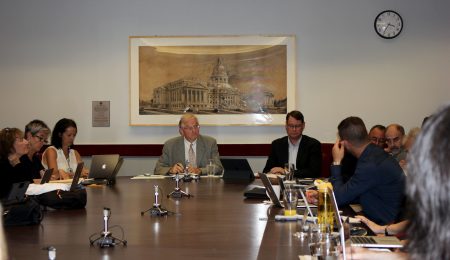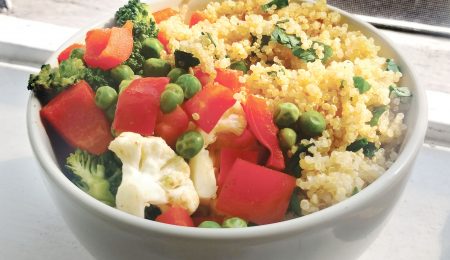This inaugural Green Thumbs Issue looks at the spectrum of solutions to fight climate change
Apocalypse Now (?)
I grew up in Vancouver which, as you all probably know, is one of the best places in the world to live (I’m not biased though). What you probably don’t know is that Vancouver is situated on the Cascadia subduction zone, a fault line between the Juan de Fuca and North American tectonic plates. This means that for as long as I can remember, I’ve been told that the ‘Big One’ is coming. The off-the-richter scale earthquake to end all earthquakes will hit Vancouver, destroying every scenic boardwalk and overpriced bubble tea shop in its path.
This summer British Columbia was ravaged by an unprecedented number of forest fires, to the extent that metro Vancouver was covered in smoke. Going home this summer and seeing everything covered in an eerie orange haze like something out of the new Blade Runner movie made climate change feel frighteningly real. This shit is happening now, and we’re already seeing the dystopian consequences.
—Nadia Drissi El-Bouzaidi, Associate Features Editor.
Your purchase is your vote—use it wisely
As a business student, one of my biggest disappointments has been observing the tendency of corporations to push sustainability to the back burner. But here’s the thing, those businesses only exist because we give them the social license to operate (more simply put, we buy their stuff).
Every time you buy from a business, ask yourself if they are a business that’s working to minimize their effects on our climate. Or even better, working to reverse effects they’ve already had.
Consumer power is a thing we need to exercise if we’re going to get corporations on board with mitigating climate change. Buying from companies that have a major sustainability agenda can be a powerful message to businesses across the board. After all, each time you tap your debit card you are voting for a business’ success. It’s time to withhold our vote from those who don’t think climate change is their problem.
—Savannah Awde, Features Editor.
Environmental migrants need to be part of the discussion
While hotter summers and excruciatingly cold Ottawa winters aren’t ideal, I’m fortunate that my living situation isn’t compromised by climate change.
Environmental migrants and refugees are too often left out of mainstream conversations on climate change—this is likely because we don’t know very much about the issue. Environmental migrants are those forced to flee their homes due to droughts, rising sea levels, and a disruption in seasonal weather patterns, but often have a more difficult time finding refuge due to difficulties in defining of the term.
The estimates of the total number of climate refugees are grim—over 200 million refugees by 2050 is the leading prediction. Numbers like that are terrifying. Consider for a moment that the Syrian refugee crisis concerns about 5 million displaced people—you can begin to imagine the apocalyptic effects of a new refugee crisis of this scale.
Many of these people will be displaced from coastal homes, so the biggest effort in stemming this migration is making sure the water levels raise as little as possible. A lot of effort will also fall upon those currently working with refugees, as they must figure out—and fast—how to deal with a refugee crisis the scale of which we have never seen before.
—Graham Robertson and Ryan Pepper, Managing Editor and Arts & Culture Editor.
Shooting for the stars
I’ve always been impressed with companies and researchers that shoot for the stars. And I think these people will have an important role to play in protecting our environment going forward.
Whether it’s companies like Tesla, which has made cars that people think are awesome, and also happen to be 100 per cent electric, or scientists like those who created the “impossible burger”—a meatless hamburger that’s indistinguishable from its real counterpart, just without the methane emissions from livestock.
Governments can make sure these moonshot companies get a chance to live up to their potential, and work with universities to make sure researchers get the funding they need to advance science to the point where such breakthroughs are possible. That way, students in science, engineering, the arts, or any other program, have the tools they need to pursue big goals.
—Eric Davidson, Editor-in-Chief.
What are we inhaling?
I come from Jeddah, Saudi Arabia, which is known for its heat and its inability to handle rain. The city’s current infrastructure is not made to withstand rain, so the times that we have had rain, we were not prepared. People lost homes and loved ones, and even today a little rain can destroy homes.
But instead of working to adjust the infrastructure, the government opted for shooting chemicals in the sky to disperse the clouds so it wouldn’t rain.
If you’re wondering if we get rain now, the answer is that we don’t. Something so natural to feed the earth is now controlled by the government. It was in this moment that I realized the effects of climate change on the city I grew up in. Although we technically live in a desert, even it needs a little rain.
—Zainab Al-Mehdar, News Editor.





